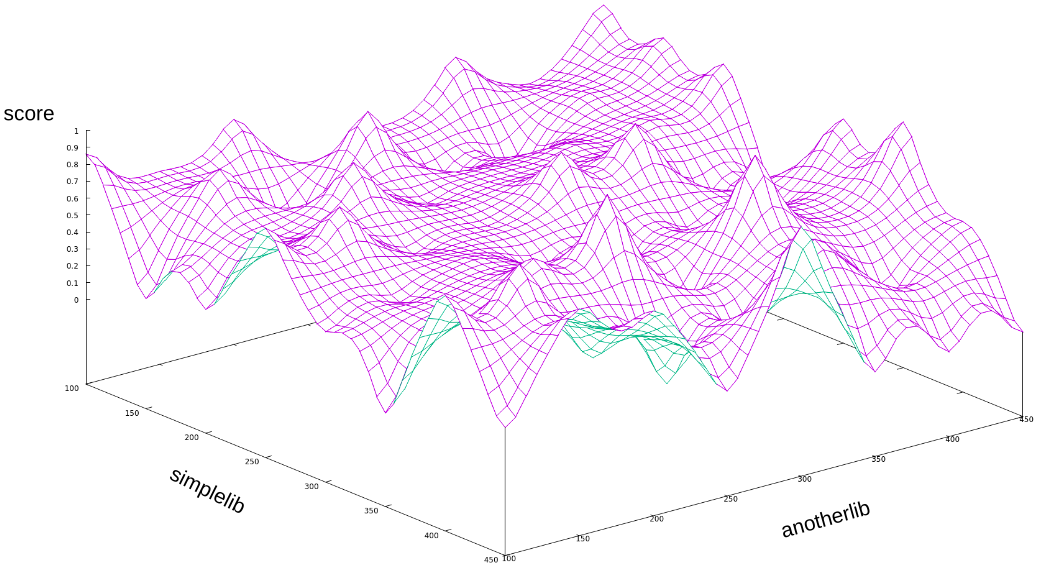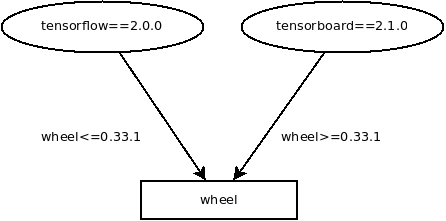Thoth’s adviser recommendation format¶
Thoth’s recommendations respects format used by a tool called Pipenv for requirements. From Pipenv’s main pages:
Pipenv is a tool that aims to bring the best of all packaging worlds (bundler, composer, npm, cargo, yarn, etc.) to the Python world.
It automatically creates and manages a virtualenv for your projects, as well as adds/removes packages from your Pipfile as you install/uninstall packages. It also generates the ever-important Pipfile.lock, which is used to produce deterministic builds.
Pipenv is primarily meant to provide users and developers of applications with an easy method to setup a working environment.
By browsing the documentation you can see that Pipenv uses two files -
Pipfile and Pipfile.lock. The first stated states direct dependencies
of your application and the latter one states fully pinned down software
packages installed to run your application.
Thoth’s adviser adopted this format from numerous reasons, the main are:
as stated above, deterministic builds
guaranteed provenance of installed packages by using digests of artifacts installed
straightforward configuration of Python packages used
separation of your development packages
configuration of Python interpreter used
straightforward integration with OpenShift’s source-to-image builds
straightforward integration with Jupyter Notebooks
additional neat configuration options
As the format produced by Thoth’s adviser is compatible with Pipenv, you can directly use Pipenv on the recommended software stack. See Integrating with Thoth section for more info on how to integrate with Thoth and benefit from its recommendations.
Note
Check micropipenv. It is a lightweight complement to Pipenv that can be handy for you in some situations.
Compatibility with pip/Pipenv resolver¶
As Thoth is also considering used software environment, it can take into account environment markers. For example, dependencies that are installed conditionally based on environment markers can be removed from software stack - Thoth’s lockfile consists of packages that are really needed to run your application, given version range specification and pre-computed environment markers for target software environments. That’s why your resolved application stack is optimized for the given software environment (and also hardware environment in case of hardware specific recommendations) and might not work properly on other environments (e.g. different Python interpreter versions).
Other issues might arise when Thoth’s resolution pipeline takes into account native packages and their ABI versions present in the target software environment - again, packages that depend on different or non-existing native packages can simply fail on assemble time (installation) or runtime when different software environment is used in comparision to the one provided to Thoth’s adviser.
Resolution of Thoth’s adviser might come up with a software stack that would never be produced by pip or Pipenv. The reason is a different resolution algorithm used and the aggregated knowledge Thoth uses during the resolution process. Thoth’s adviser is a drop-in replacement which provides server side resolution with additional guidance on installed packages based on observations stored in Thoth’s knowledge base.
Note
It’s a good practice to create overlays for different software or hardware environments you want to run. Check Thamos documentation for more details.
Environment markers applied on direct dependencies are not evaluated during the resolution done on server but are taken into account once packages are installed.
Thoth’s resolver considers also python_requires as provided by package
maintainers, see PEP-440 or
packaging documentation
for more info and semantics. The Python requirement information is aggregated
during Thoth’s solver runs as
part of data aggregation and considered during the resolution (implemented by
SolvedSieve pipeline unit). As the interpreter information is evaluated
during solver runs for the given package they are specific for the given solver
(e.g. ubi-8 solver running Python 3.6).
In some cases these Python requirements might give misleading results. For
example, consider python_requires>3.9.1 for some package. If solver is
running Python interpreter in version 3.9.0, the given package fails to install
and thus the recommendation engine never recommends the given package when
running any Python 3.9. This is considered a corner case as this is not seen
much in the Python ecosystem.
Resolver also implements experimental features that extend the current feature set of Pipenv or pip. See Resolver’s experimental features for more details.
Python package indexes¶
By design, pip treats all the indexes as mirrors. If you build your own
package (e.g. optimized builds of TensorFlow) and provide it on your own index,
pip has no direct configuration option to explicitly specify index that
should be used when installing the package. There are options like
--extra-index-url that can add additional Python package indexes, however
they are treated as fallbacks or mirrors.
On the other hand, Pipenv provides a configuration option for specifying
custom package indexes.
Thoth respects this configuration and software stacks produced that use
Pipfile.lock format always specify from which index the given package came
from. To prevent installing undesired artifacts, artifacts digests are
provided. Note Pipenv still does not implement proper package source management
even though the configuration could suggest so - this is fixed when using Thoth.
An example of a Pipfile that configures two Python package indexes - PyPI and AICoE Python package index:
[[source]]
url ="https://tensorflow.pypi.thoth-station.ninja/index/manylinux2010/AVX2/simple/"
verify_ssl = true
name = "redhat-aicoe-experiments"
[[source]]
url = "https://pypi.python.org/simple"
verify_ssl = true
name = "pypi"
[requires]
python_version = "3.6"
[packages]
tensorflow = {version="==2.0.0", index="redhat-aicoe-experiments"}
[pipenv]
allow_prereleases = true
The configuration above will use two Python package sources for all the
packages in the application stack. Moreover, it will force to use
redhat-aicoe-experiments index for installing tensorflow package that will
always come from this index if a software stack is resolved (unlike
in case of Pipenv).

